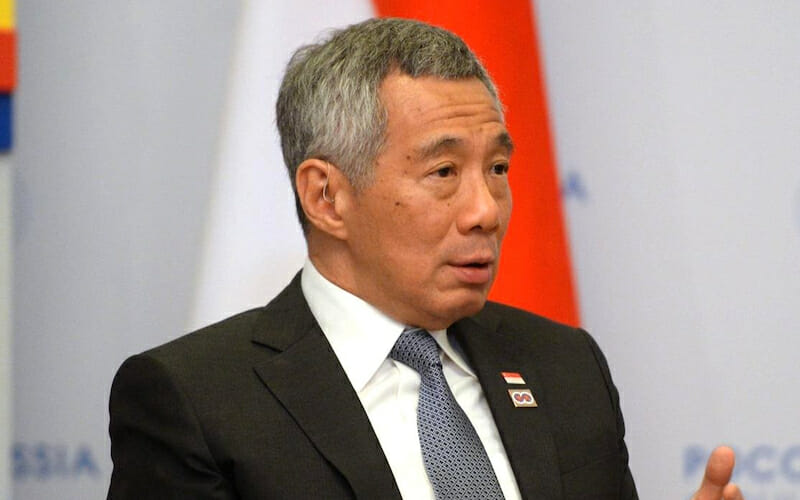
2018, a Good Year for China-Singapore Relations
China and Singapore share a long history of relations, among which friendly cooperation has always been the mainstream. In recent years, although the two countries experienced certain unpleasant twists and turns, the bilateral relations were eventually brought back “on track” in late 2007. And, 2018 will be a good year to rewarm China-Singapore relations.
2018 marks the 15th anniversary of the establishment of strategic partnership between China and the Association of South-east Asian Nations (ASEAN). Coincidentally, Singapore assumes the ASEAN chairmanship this year, and it will also continue to be the ASEAN coordinator for ASEAN-China relations until this August. Obviously, 2018 should be a perfect year for Singapore to fully demonstrate its role of an “honest broker” between ASEAN and China again.
Last September, during the “surprising” but fruitful visit to China, Singapore’s Prime Minister Lee Hsien Loong said that as ASEAN chair in 2018, Singapore would promote stronger cooperation between ASEAN and China. One month later in Manila, Singapore’s Defence Minister Ng Eng Hen and his Chinese counterpart General Chang Wanquan discussed “further practical initiatives to advance ASEAN-China relations,” especially “planning for conduct of an inaugural ASEAN-China maritime exercise in 2018.”
Lee Hsien Loong has declared that under the Chairmanship of ASEAN in 2018, Singapore would focus on: 1. Promoting and upholding a rules-based regional order; 2. Stepping up cooperation to better deal with emerging security challenges; 3. Pursuing deeper regional economic integration and enhancing regional connectivity; and finally, finding innovative ways to manage and benefit from digital technologies.
Singapore’s suggested key initiatives include building up an e-commerce framework, cyber capabilities and creating an ASEAN Network of Smart Cities. Meanwhile, Lee urged ASEAN to join hands with the Plus Three countries, China, Japan and Korea, which are already at the forefront of technological adoption, especially in e-commerce and smart cities.
China has always regarded ASEAN as a priority in its neighborhood diplomacy and a key region in promoting the “Belt and Road” initiative. Currently, China has become the largest trading partner of ASEAN for nine consecutive years, while ASEAN has been China’s third largest trading partner for seven consecutive year. At the same time, China is the largest trading partner of nine of the 10-member countries of ASEAN, and it is also the fourth largest source of foreign direct investment for ASEAN.
In recent years, both China and ASEAN have been enjoying sustained and rapid economic growth. Chinese Premier Li Keqiang described China and ASEAN as the shining “twin stars” in the constellation of development and “front-runners” of economic globalization, providing positive energy to building an open world economy.
2018 has been designated as “China-ASEAN Year of Innovation,” and it provides an important opportunity for the upgrading of relations between China and ASEAN. It is conceivable that there will surely be new momentum in cooperation between China and ASEAN in 2018, which will certainly create considerable business opportunities in this region. To make such cooperation more fruitful, Singapore’s role as an effective and efficient coordinator will be crucial.
In 2018, as ASEAN chair, Singapore will host the ASEAN Summit and a series of important conferences and events, some of which Chinese leaders are expected to come to Singapore personally to attend. Also this year, Singapore’s fourth-generation leadership has been gradually coming onto the stage. Therefore, Singapore’s 4G leaders will have better opportunities to more closely engage with Chinese leaders in Singapore to forge and deepen their personal friendship, which would be beneficial for the healthy development of the bilateral relations.
China and Singapore are two independent sovereign states, but the ties between the two countries have been traditionally unique. Chinese President Xi Jinping described the two countries as “close and special partners.” Although Singapore was the second to the last ASEAN country to establish full diplomatic relations with China in 1990, only one year earlier than Brunei (1991), China-Singapore relations have been developing rapidly and extensively.
So far, bilateral trade volume and personnel exchange visits between the two countries have increased more than 20 times. Nowadays, China is Singapore’s largest trading partner, while Singapore is China’s largest foreign investor. The two countries have already formed an inseparable economic and trade relations.
Looking back at history, the China-Singapore friendship was initiated by China’s former leader Deng Xiaoping and Singapore’s founding father Lee Kuan Yew and has been inherited and developed by their successors, going through many difficulties hand in hand. Currently, China-Singapore relations are “more than stable” and “in a good state” after a rough patch last year. That is encouraging.
In such a rapidly changing era of globalization, the relations between Singapore and China must keep up. In the future, China and Singapore can continue to generate more and more win-win outcomes, by seeking common ground while shelving differences, and by taking care of each other’s core interests and major concerns with full understanding and respect.

